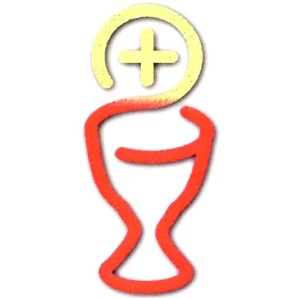This article was written for the November 2016 issue of our parish magazine.
 Perhaps one of music’s most infamous compositions is John Cage’s 1952 piece, 4’33” (pronounced Four Minutes Thirty Three Seconds, or more simply, Four-Thirty Three). Written in three movements, it has a key signature and time signature. Whilst it can be arranged for any combination of instruments, it is most often performed by pianists. Picture the scene: on the concert stage there is a grand piano. The pianist walks out, bows, and sits at the piano. He is ready, and begins. Four minutes and thirty three seconds later (he has a stopwatch on the piano), he stands to take a bow. Sometimes there is applause, sometimes a puzzled silence.
Perhaps one of music’s most infamous compositions is John Cage’s 1952 piece, 4’33” (pronounced Four Minutes Thirty Three Seconds, or more simply, Four-Thirty Three). Written in three movements, it has a key signature and time signature. Whilst it can be arranged for any combination of instruments, it is most often performed by pianists. Picture the scene: on the concert stage there is a grand piano. The pianist walks out, bows, and sits at the piano. He is ready, and begins. Four minutes and thirty three seconds later (he has a stopwatch on the piano), he stands to take a bow. Sometimes there is applause, sometimes a puzzled silence.
Was this one of music’s deeply unfunny “jokes”? A post-modern comment on society? No. Cage himself considers this his most important work, exemplifying his thesis that any sounds constitute music: in absence of any “proper” music, the audience is compelled to listen to environmental sounds – vehicles passing by outside, clocks ticking, coughs and sneezes. I think we are also invited to listen attentively to our personal internal soundscapes – our thoughts, our breathing, our pulse. When was the last time you sat quietly for so long and simply listened?
In “A Book of Silence”, Sara Maitland recounts her year of living in total silence – the struggle to find it, the deeply spiritual experiences brought about by living in silence, and the long term benefits afterwards. Crucially, she reminds us that silence is not simply an absence of sound: it can also be an absence of listeners. Think of all the political and religious figures around the world whose words the governing regimes refuse to allow to be heard.
At 11.00am on Friday 11 November, many of us will observe two minutes of silence. The idea is to use that time to remember the fallen in the two world wars of the last century, and the many conflicts around the world since. If it helps to focus your thoughts, you might like to have this poem to reflect on:
“The Inquisitive mind of a child” (Author Unknown)
“Why are they selling poppies, mummy,
Selling poppies in town today?”
“The poppies, child, are flowers of love
For the men who marched away.”
“But why have they chosen a poppy, mummy,
Why not a beautiful rose?”
“Because, my child, men fought and died
In the field where the poppy grows.”
“But why are the poppies red, mummy,
Why are the poppies so red?”
“Red is the colour of blood, my child,
The blood our soldiers shed.”
“The heart of the poppy is black, mummy,
Why does it have to be black?”
“Black my child, is the symbol of grief
For the men who never came back
“But why, mummy, are you crying so?
Your tears are giving you pain.”
“My tears are my fears for you, my child,
For the world is – FORGETTING AGAIN.”
Carol P
